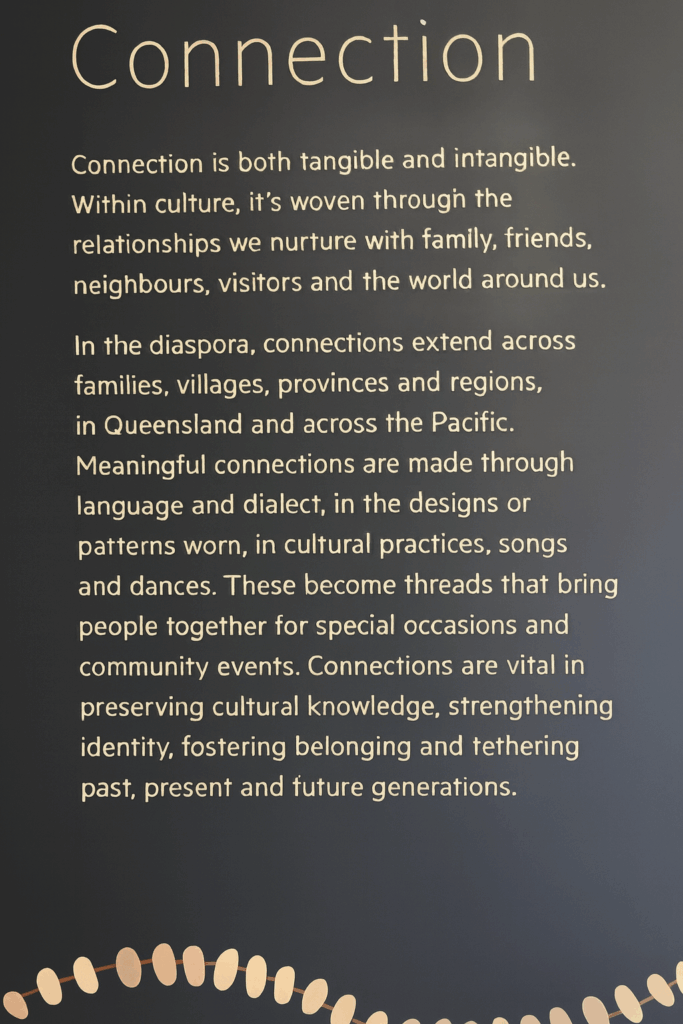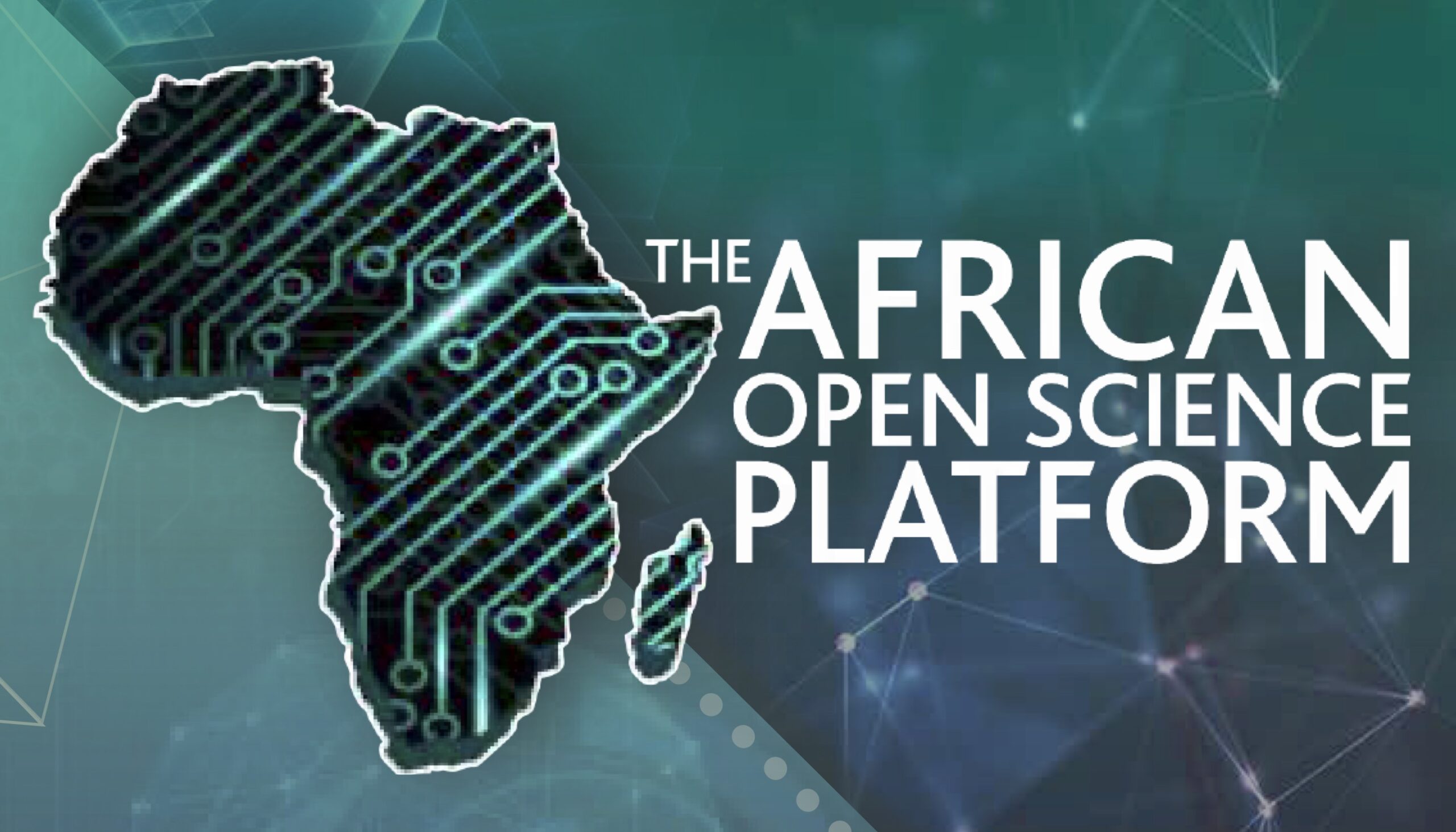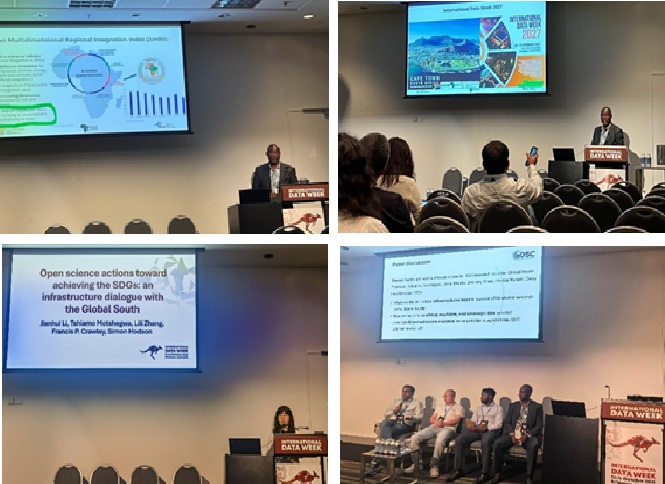Lili Zhang, Director of the Global Open Science Cloud International Programme Office (GOSC IPO), Computer Network Information Center, Chinese Academy of Sciences
 On my first day in Brisbane for SciDataCon and International Data Week (IDW) 2025, I was captivated by local exhibits, especially the keyword ‘connection’ that stood out to me. ‘Connections bring people together and are vital in preserving cultural knowledge, strengthening identity, fostering belonging, and tethering past, present, and future generations.’ The same applies to open science infrastructures.
On my first day in Brisbane for SciDataCon and International Data Week (IDW) 2025, I was captivated by local exhibits, especially the keyword ‘connection’ that stood out to me. ‘Connections bring people together and are vital in preserving cultural knowledge, strengthening identity, fostering belonging, and tethering past, present, and future generations.’ The same applies to open science infrastructures.
As a key pillar of Open Science, e-infrastructures connect advanced technologies with domain-specific solutions for robust development; they connect cloud services to the widest possible audience; and they tie digital revolutions to sovereignty, ensuring a fair and equitable future. As part of extended and ongoing collaborations and discussions, the Global Open Science Cloud initiative (GOSC) connects us with an IDW session titled ‘Open science actions toward achieving the SDGs: an infrastructure dialogue with the Global South’ on September 15th in Brisbane, Australia.
The UN 2030 Agenda has become a cornerstone of global science and policy efforts, demanding urgent, collective action to tackle poverty, inequality, climate change, and other systemic problems. The Global South remains at the forefront of the risks and opportunities within the SDGs framework. These regions face the most significant development challenges, but they also possess a wealth of untapped knowledge systems, scientific talents, and emerging infrastructures.
 Co-organized by the Global Open Science Cloud International Programme Office (GOSC IPO), the session featured discussion on fostering a dialogue about how trusted, cross-national, and cross-regional e-
Co-organized by the Global Open Science Cloud International Programme Office (GOSC IPO), the session featured discussion on fostering a dialogue about how trusted, cross-national, and cross-regional e- infrastructures can promote science and innovation in line with the SDGs. Dr. Tshiamo Motshegwa, Director of the African Open Science Platform (AOSP), highlighted regional efforts in developing pan-African cyberinfrastructure that support the SDGs. He sparked conversations around the need and impetus for creating a federated and policy-aware research environment in Africa, including one that addresses the impacts of the SDGs. He highlighted the opportunity to advance these conversations at International Data Week (IDW) 2027, which will be hosted in South Africa. Dr. Motshegwa also shared African perspectives on managing data sovereignty and human rights. He highlighted that navigating data sovereignty and human rights is a complex, delicate task that often involves balancing and carefully managing related tensions. He also provided African examples of policy tools, including the AU AI Strategy, AU Data Policy Framework, and AU Science, Technology and Innovation Strategy for Africa (STISA) 2034, along with projects on the continent being used to promote open science.
infrastructures can promote science and innovation in line with the SDGs. Dr. Tshiamo Motshegwa, Director of the African Open Science Platform (AOSP), highlighted regional efforts in developing pan-African cyberinfrastructure that support the SDGs. He sparked conversations around the need and impetus for creating a federated and policy-aware research environment in Africa, including one that addresses the impacts of the SDGs. He highlighted the opportunity to advance these conversations at International Data Week (IDW) 2027, which will be hosted in South Africa. Dr. Motshegwa also shared African perspectives on managing data sovereignty and human rights. He highlighted that navigating data sovereignty and human rights is a complex, delicate task that often involves balancing and carefully managing related tensions. He also provided African examples of policy tools, including the AU AI Strategy, AU Data Policy Framework, and AU Science, Technology and Innovation Strategy for Africa (STISA) 2034, along with projects on the continent being used to promote open science.
Additionally, Dr. Huajin Wang from CNIC, CAS, introduced the Research Data Collaboration Network (RDCN) and CoNet as cross-domain data toolkits for open collaboration. RDCN is a novel reference architecture designed to facilitate seamless, end-to-end collaborative analysis. CoNet, meanwhile, is a production-level implementation of the RDCN architecture, deployed across the Chinese Academy of Sciences (CAS) data center system to enable complex, cross-domain scientific analysis. Dr. Rania Elsayed Ibrahim from the National Authority for Remote Sensing and Space Sciences in Egypt virtually shared insights on sustainable North-South collaboration driven by capacity development frameworks. For my part, I discussed GOSC’s efforts to develop advanced e-infrastructures for the Global South, supporting SDG research and capacity building. The following panel discussion broadened the conversation, with Dr. Pankaj Kumar of the International Geographical Union (IGU) stressing the importance of AI-focused training and the implementation of the SDGs. Dr. More Manda, Director of the National Integrated Cyberinfrastructure System (NICIS) from South Africa, stressed the urgent need to develop integrated solutions to boost investments in e-infrastructures for the Global South.
Building on ISOSC 2025, this GOSC IDW discussion deeply impressed me by addressing the SDGs challenges we face and affirming the importance of co-developing interoperable technical solutions for open science infrastructures. Acting as a bridge to connect trust across various sectors, we hope that future GOSC events will continue to promote Open Science and the SDGs. Let’s connect in the next IDW series to be hosted in South Africa in 2027!
More information is available as follows:
GOSC Initiative: https://codata.org/initiatives/making-data-work/global-open-science-cloud/
ISOSC 2025: https://www.cstcloud.net/news/200.jhtml
IDW 2025 GOSC session: https://www.cstcloud.net/news/203.jhtml

